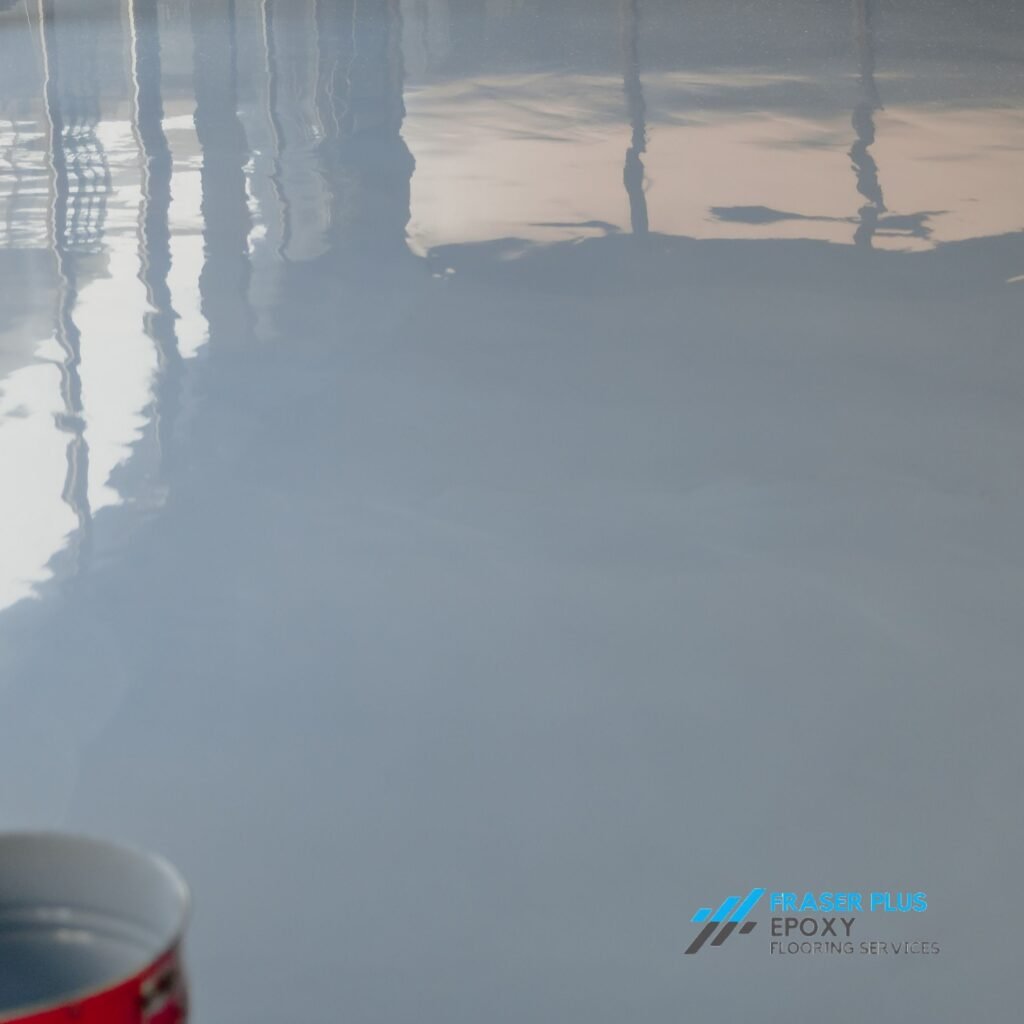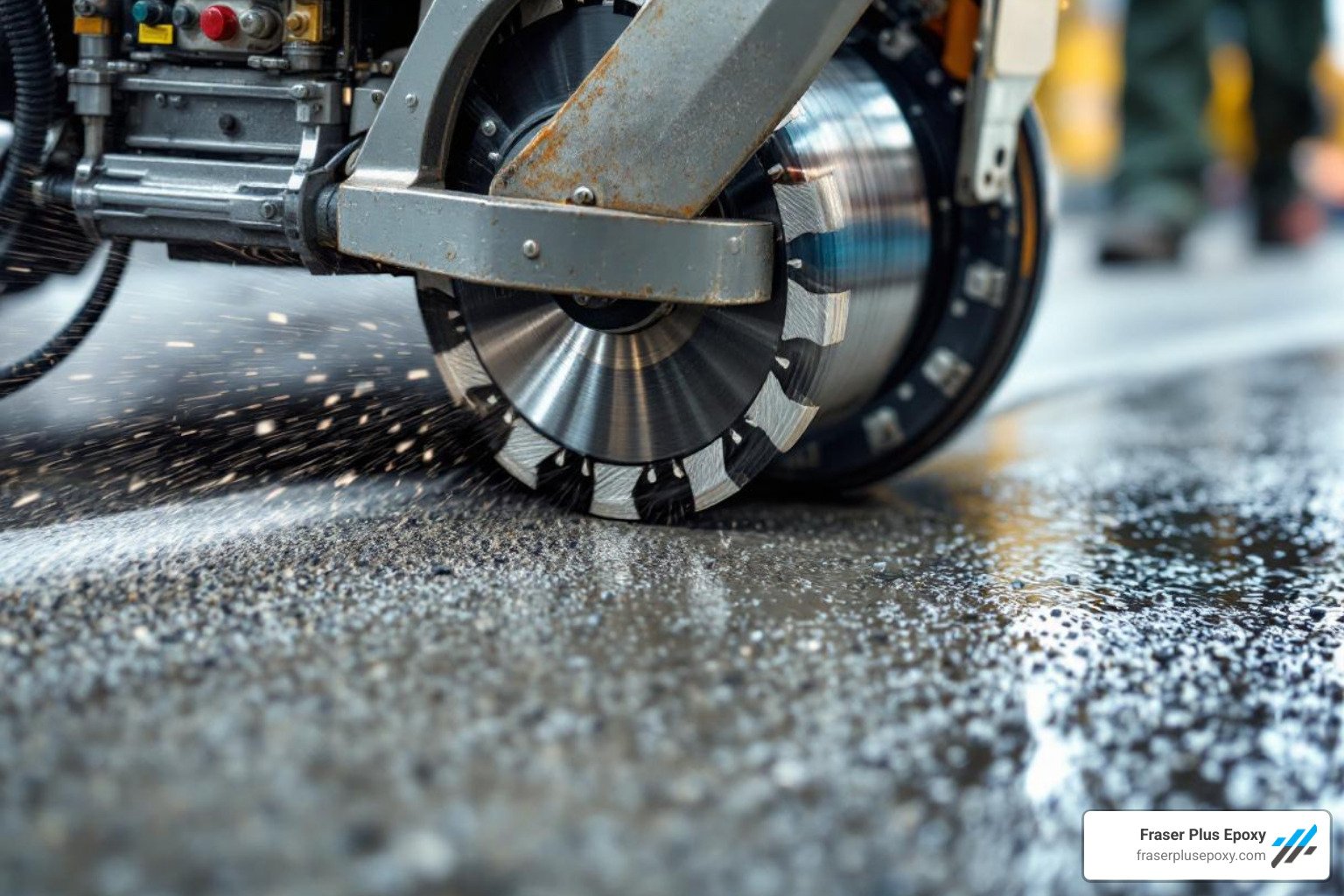Why Strata Approval Matters for Vancouver Condo Flooring
If you live in a strata-managed condo, written approval isn’t optional—it’s a core requirement before starting any hard-surface flooring project. Vancouver strata councils require detailed documentation not to create extra work, but to ensure two critical things: that your renovation complies with bylaws and that your new floors won’t negatively affect neighbors below you.
A complete application typically includes epoxy product information, your contractor’s credentials, installation methods, timelines, proof of insurance, and most importantly, a plan to meet acoustic performance standards.
Increasingly, strata councils also require you to sign an indemnity agreement, which makes you liable if soundproofing tests fail and neighbors start complaining about noise. In extreme cases, that means removing the floor at your expense. Because of this, choosing the right contractor and underlayment system is as important as selecting your epoxy color or finish.
Understanding IIC Ratings and Acoustic Requirements
The most common challenge for condo epoxy flooring is meeting acoustic standards measured by IIC—Impact Insulation Class ratings. These ratings measure how well your floor assembly stops impact noise such as footsteps or chairs rolling. Many strata buildings in Vancouver require an IIC rating of at least 55, while newer developments often demand 60 or higher. The higher the number, the more sound isolation you achieve.
On its own, epoxy flooring offers no sound dampening. In fact, it can reflect and amplify noise when installed directly on concrete. That means the real key to approval is the underlayment you choose. Premium acoustic membranes, cork composites, or rubberized pads can cost significantly more per square foot, but they are the only way to reach strata-mandated acoustic levels. Some buildings even require professional acoustic testing after the installation, which can cost $1,500 to $3,000, but ensures compliance and protects you from disputes later.
Vancouver Building Codes and Permit Requirements
Beyond strata approval, Vancouver epoxy flooring must still comply with the city’s building codes. The Vancouver Building By-law 2025 outlines requirements related to fire safety, structural assemblies, and mechanical systems. If your flooring work involves altering radiant heating systems, modifying load-bearing structures, or impacting fire separations, you may need a building permit in addition to strata approval.
Most condo owners won’t encounter complex permit requirements for a standard epoxy installation, but it’s still essential to choose a contractor familiar with Vancouver building regulations. Fire resistance ratings, electrical adjustments, and HVAC compatibility are all factors that could trigger inspections. A professional, insured installer reduces the risk of permits being flagged and ensures compliance with municipal standards.
Special Considerations for Vancouver Condos
Not all Vancouver condos are alike, and several unique building conditions can affect your epoxy project. Radiant in-floor heating, common in luxury high-rises, requires epoxy systems that can expand and contract with temperature changes. Without the right formulation, your floor could crack or delaminate over time. Heritage buildings create another layer of complexity, requiring reversible methods that preserve original architecture and sometimes additional approvals from heritage committees.
Vancouver’s coastal climate is another factor. Moisture, humidity, and even marine salt exposure in waterfront units require epoxy systems designed for high tolerance. According to the 2025 Home Remodeling Trends report by Neil Kelly, homeowners are focusing on timeless design, comfort, and functionality in their renovations.
Finally, seismic resilience plays a role in flooring systems for high-rise buildings. Flexible epoxy formulations can help prevent damage during structural movement caused by earthquakes—a practical concern in Vancouver’s building landscape.
Planning Costs, Timelines, and Installation Logistics
Managing a flooring upgrade in a condo involves more than scheduling a contractor. Strata rules typically restrict work hours, require advance elevator bookings, and mandate protective coverings for common spaces during material transport. Ignoring these requirements can easily delay your project or result in fines.
When budgeting, it’s smart to look beyond epoxy materials and labor. Strata approval fees, acoustic testing, permits, premium underlayment, and logistics like elevator deposits can add $3,000 to $8,000 to your project. While it may seem costly, these measures protect you from far more expensive removal orders or disputes later. Once everything is approved and scheduled, the actual epoxy application usually takes 2–5 days, with curing time before full use lasting a week.
Protecting Your Investment Long Term
One of the best advantages of epoxy flooring is its longevity when properly maintained. Routine care involves simple cleaning with pH-neutral products and avoiding harsh chemicals. In Vancouver’s rainy climate, seasonal adjustments like protecting against tracked-in saltwater or adapting to humidity shifts help preserve your floor’s shine and performance.
Beyond maintenance, warranties are critical. Quality contractors should provide strong coverage on both materials and workmanship, typically ranging from 5–15 years. Make sure your warranty addresses acoustic compliance, as strata noise disputes don’t just involve aesthetics. Keeping full documentation of your approvals, installation details, and warranty certificates adds resale value to your property and prevents issues if you decide to rent or sell your condo later.
Vancouver Epoxy Flooring | Fraser Plus Epoxy
Successfully installing epoxy flooring in your Vancouver condo goes far beyond choosing a finish. By understanding strata approval requirements, meeting IIC-rated soundproofing standards, and complying with city building codes, you protect your investment and avoid costly pitfalls. Partnering with contractors who specialize in Vancouver epoxy flooring ensures that your project is smoother, faster, and fully compliant, leaving you with durable, beautiful floors that elevate your home and maintain perfect harmony with neighbors and strata alike.
Contact Fraser Plus Epoxy today to get a free quote for your epoxy flooring installation in Vancouver.
FAQs
1. How long does Vancouver epoxy flooring typically last in condos?
When installed professionally, epoxy flooring in condos can last 15–20 years with minimal maintenance. Its durability is one of the strongest reasons Vancouver homeowners choose epoxy over other flooring options.
2. Can epoxy floors be customized with colors or decorative finishes?
Yes, epoxy flooring allows a wide variety of finishes including metallic effects, colored flakes, and matte or glossy options. Many Vancouver condo owners use these customizations to create stylish, modern interiors.
3. Why should I choose a professional company for Vancouver epoxy flooring?
Professional installers handle strata documents, provide soundproofing solutions, and ensure smooth compliance with Vancouver building codes. This saves time, avoids costly mistakes, and guarantees your floor installation is fully approved.
4. Can epoxy be repaired if it gets scratched or damaged?
Unlike some flooring types, epoxy can be resurfaced or patched if damaged. Professional repair services can easily refresh worn spots without requiring a full floor replacement.
5. How does Fraser Plus Epoxy help with condo epoxy flooring projects?
Fraser Plus Epoxy specializes in Vancouver epoxy flooring for condos, offering approval-ready documentation and premium underlayment systems. Their experience with strata councils ensures smoother approvals and faster installations.
People Also Ask
1. What cleaning products should be avoided on epoxy floors?
Vinegar, bleach, and other harsh acidic cleaners can damage the epoxy surface. It’s best to use only pH-neutral cleaning solutions designed for hard floors.
2. Is epoxy flooring safe for households with pets?
Yes, epoxy is pet-friendly because it resists scratches from claws and cleans easily from accidents. It’s also non-porous, so it won’t absorb odors or stains.
3. Can epoxy flooring improve property resale value in condos?
Buyers in Vancouver often view epoxy floors as a modern upgrade, especially compared to carpet replacement. High-quality installations can increase resale appeal and property value.
4. Does epoxy flooring emit harmful fumes during installation?
Professional-grade epoxy systems used in condos are low-VOC and installed with ventilation systems. This minimizes odor and ensures safe occupancy after curing.
5. How does epoxy compare to vinyl plank flooring in condos?
Vinyl plank offers comfort and basic sound dampening, but epoxy provides far greater durability and longevity. Epoxy is especially valued for its seamless design and resistance to water damage.


